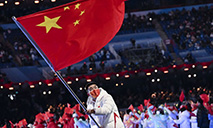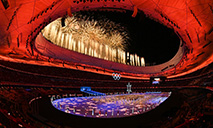Russia recognizes "republics" in Ukraine, UN calls for peaceful settlement
MOSCOW, Feb. 22 (Xinhua) -- Russian President Vladimir Putin on Monday evening signed decrees recognizing the independence of two self-proclaimed regions in eastern Ukraine's Donbass as "the Lugansk People's Republic (LPR)" and "the Donetsk People's Republic (DPR)."
Backed by the country's top officials, Putin made the decision as Russia and the U.S.-led North Atlantic Treaty Organization (NATO) are mired in an impasse of their security guarantee talks, which has caused grave international concerns over the escalating tensions in the region.
"Russia has done everything to preserve the territorial integrity of Ukraine" by fighting for the implementation of 2015 Minsk agreement, but all the efforts ended up in vain, Putin told the public, adding that the security crisis occurred due to NATO's eastward expansion, which has led to the loss of mutual trust with Russia.
Putin also inked the Treaty of Friendship, Cooperation and Mutual Assistance between Russia and the LPR and the DPR respectively with the heads of the two "republics."
He called it just "a matter of time" for NATO to accept Ukraine as a member state and then build facilities on its territory so that the level of military threats to Russia will dramatically rise.
In such a condition, the president said, Russia "has every right to take retaliatory measures to ensure its own security."
Ukrainian President Volodymyr Zelensky said early Tuesday that Russia's move is a violation of Ukraine's sovereignty and territorial integrity. "Russia is solely responsible for the consequences of such decisions," Zelensky said in a video address to the nation published on Facebook.
Ukraine has been calling for an emergency summit of the Normandy Format, a meeting of the United Nations Security Council, and a special meeting of the Organization for Security and Cooperation in Europe to address the issue, Zelensky noted.
Meanwhile, United Nations Secretary-General Antonio Guterres has called for "peaceful settlement" of the conflict. In a statement issued by UN Spokesperson Stephane Dujarric, the UN chief is "greatly concerned" by Russia's decision.
"The secretary-general urges all relevant actors to focus their efforts on ensuring an immediate cessation of hostilities, protection of civilians and civilian infrastructure, preventing any actions and statements that may further escalate the dangerous situation in and around Ukraine and prioritizing diplomacy to address all issues peacefully," the statement added.
China's permanent representative to the United Nations, Zhang Jun, on Monday called on all parties concerned to seek "reasonable solutions" to Ukraine issue through diplomatic means.
"We welcome and encourage every effort for a diplomatic solution, and call on all parties concerned to continue dialogue and consultation, and seek reasonable solutions to address each other's concerns on the basis of equality and mutual respect," Zhang told the Security Council emergency meeting on Ukraine.
In response to Russia's decision, the U.S. State Department issued a statement Monday condemning Moscow's recognition of the two "republics" as "sovereign and independent" states.
The United States plans to announce new sanctions against Russia Tuesday, according to Bloomberg, citing a U.S. official.
Also on Monday evening, European Council President Charles Michel and European Commission President Ursula von der Leyen said in a joint statement that they condemn Russia's action.
"This step is a blatant violation of international law as well as of the Minsk agreements," the statement said, adding that the European Union will react with sanctions against those involved in the recognition.
The conflict in eastern Ukraine began in April 2014 with fightings between the Ukrainian government troops and local armed groups who seized several towns. With the mediation of the global community, the two sides in Belarus' capital of Minsk reached ceasefire agreements in September 2014 and February 2015 respectively.
Russia has been seeking NATO's guarantee to halt eastward expansion. However, U.S. President Joe Biden's administration took a hard line against Russia, supporting Ukraine's efforts to join the U.S.-led military alliance and increasing its military assistance to Kiev, which has re-escalated tensions in the region.
The situation in eastern Ukraine has been getting worse since Feb. 17, as the Ukrainian government and local armed groups blamed each other for launching aggressive bombards.
Photos
Related Stories
Copyright © 2022 People's Daily Online. All Rights Reserved.










